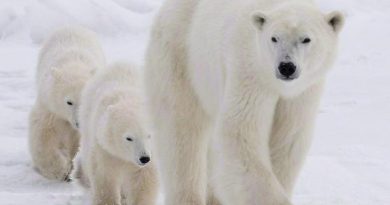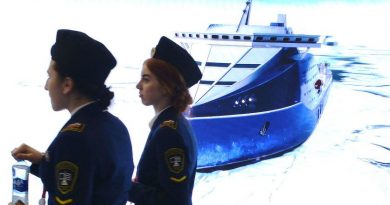Inuit hail Arctic-focused restructuring at DFO and Canadian Coast Guard
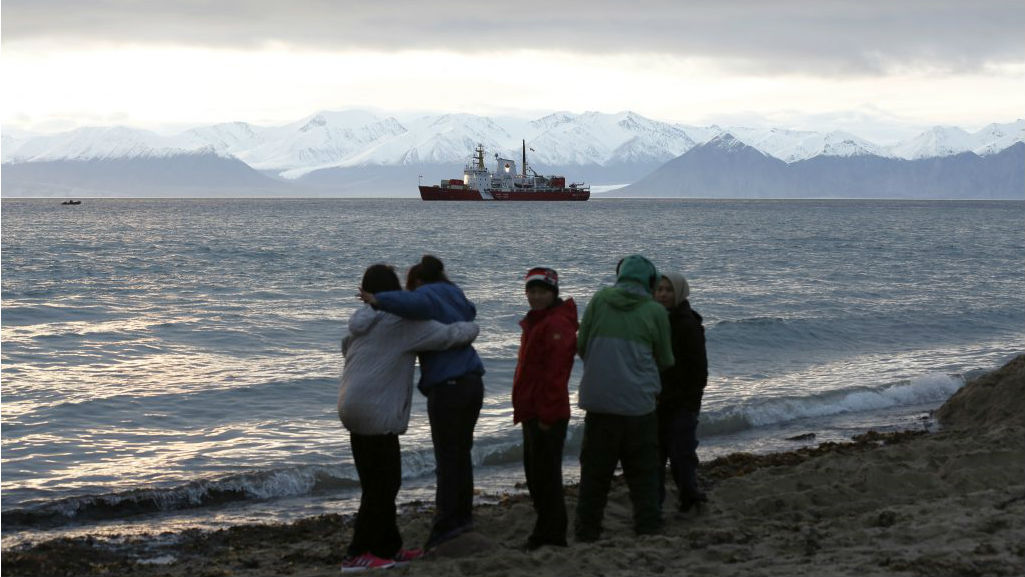
As climate change opens up the Canadian Arctic to more shipping, fishing and resource development the federal government is reorganizing the operational structure of the Department of Fisheries and Oceans (DFO) and the Canadian Coast Guard to create a stand-alone Arctic operational region, officials announced Wednesday.
The new operational region will include all four of Canada’s Inuit regions, known collectively as Inuit Nunangat, said in a joint announcement in Iqaluit, Nunavut, Jonathan Wilkinson, Minister of Fisheries and Oceans and the Canadian Coast Guard, and Natan Obed, president of Inuit Tapiriit Kanatami (ITK), Canada’s national Inuit organization.
The new region will stretch from the Inuvialuit Settlement Region in the Northwest Territories, to Nunavut, Nunavik in Northern Quebec and Nunatsiavut in Northern Labrador.
“I’m very pleased to announce today the creation of a new Department of Fisheries and Oceans Arctic region and a new Coast Guard Arctic region,” Wilkinson said. “These new regions will help to ensure northerners are well served by programs and services that are tailored-made to meet the needs of their communities.”
More tangibly the restructuring will mean additional capacity for search and rescue, science and environmental monitoring that is driven by Inuit and Indigenous priorities, Wilkinson added.
It would also mean more opportunities for Inuit, Indigenous and other northerners to drive the programs and services that are delivered in the North, he added.
Policy space centred in Inuit reality
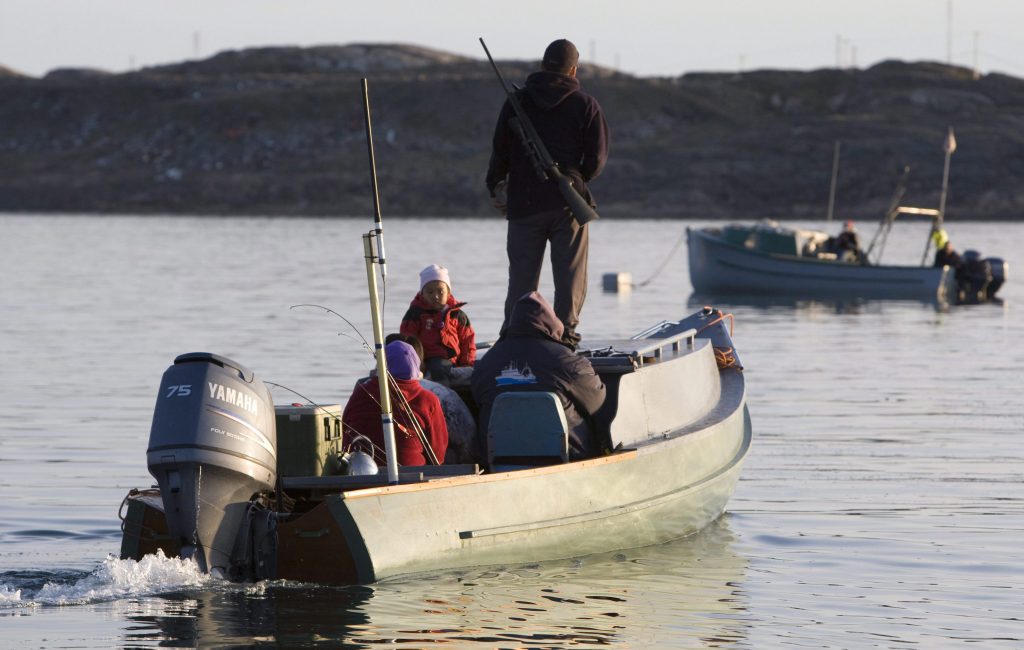
Speaking at the announcement ceremony hosted at the Nunavut legislature in Iqaluit, Obed said he hoped the new operational region within the DFO and the Coast Guard can change the way decisions are made in Canada to better respect the Inuit and help implement land claim agreements.
Inuit Nunangat comprises 35 per cent of Canada’s landmass and over 50 per cent of its coastline, Obed said. All 51 Inuit communities across Canada are near water and almost all of them are in a marine environment, he said.
“We are the singular holders of land in co-management with provinces and territories and with the federal government for about 3.5 million square kilometres of this country, and then a majority of oceans that are adjacent to the coastline,” Obed said. “We as Inuit share a language, share a society, share a worldview and it only makes sense to create a policy space that is centred in the Inuit reality.”
Paradigm shift
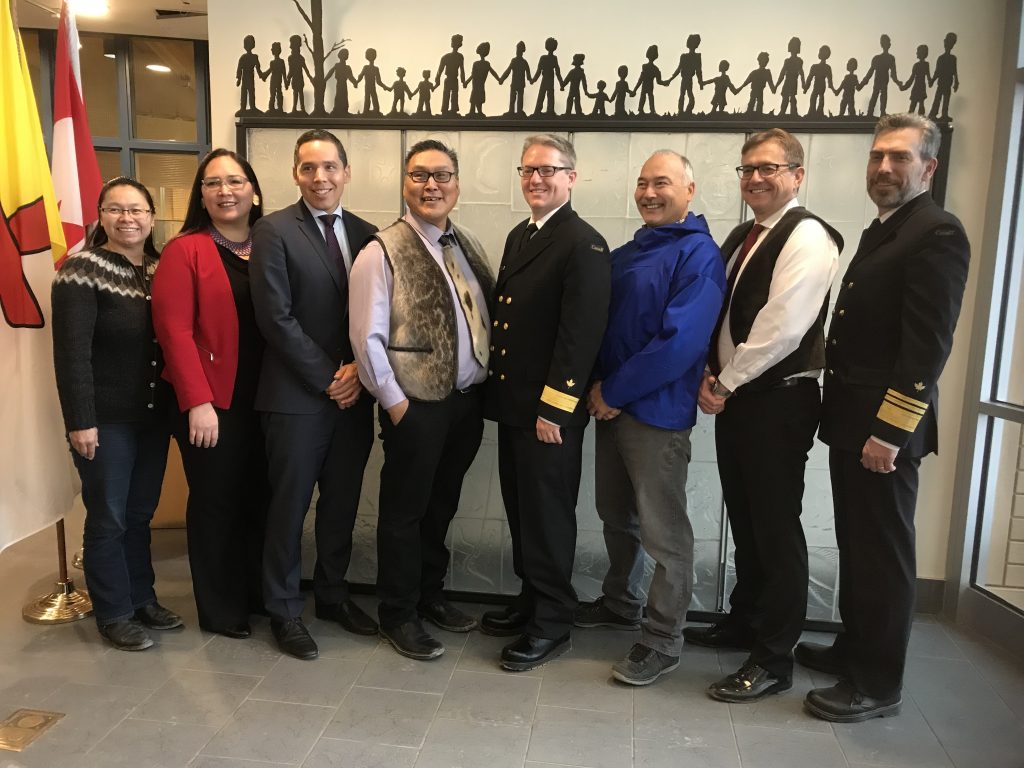
Heather Exner-Pirot, the managing editor of the Arctic Yearbook, said while in concrete terms the announcement is simply a jurisdictional and bureaucratic one, it represents a larger change in paradigm.
“The Coast Guard and DFO have been working hard on community consultations, including and perhaps especially Inuit communities,” Exner-Pirot said. “I don’t know that they always get the credit they deserve – we are used to narratives where federal government departments and Indigenous peoples are in opposition to each other.”
On the other hand, the ITK has shown again it has the ear of the federal government at every level and across departments, she said.
“They offer the government the chance to look responsive and reconciliatory, and in return they influence significant changes to the ways things work,” Exner-Pirot said. “The Liberals crave these kinds of announcements, especially in advance of the Arctic Framework Policy, and have put a lot on the table.”
That makes Obed one of the most effective lobbyist in Ottawa today, she added.
“I think a lot of First Nations will be looking hard at the advantages of his strategy,” Exner-Pirot said. “Though ITK has the advantage of being more geographically and ethnically homogenous than the Assembly of First Nations.”
Bringing a northern perspective
The creation of the Arctic Region will be implemented in phases and has already begun with the hiring of a new DFO Regional Director General, Gabriel Nirlungayuk, who will be based in Rankin Inlet, Nunavut, Wilkinson said. The new Assistant Commissioner of the Coast Guard, Neil O’Rourke, will be based in Yellowknife.
“I am proud to be Inuk and I’m pleased we are creating this new Arctic Region to be closer to the people in the North,” Nirlungayuk said in a statement. “In my new position, I want to help southerners understand the northern perspective and ways of doing things and I want to make sure northerners are part of our department’s decisions and projects.”
Collaboration with Indigenous peoples and communities is critical to keeping mariners safe and protecting Canada’s coasts and waterways, O’Rourke said in a statement.
“The co-development of the new Arctic region will help address the challenges unique to the North using Indigenous knowledge, and local expertise and capacity,” he said.
The DFO, which currently has six administrative regions – Newfoundland and Labrador, Maritimes-Scotia Fundy, Gulf, Quebec, Central and Arctic, and Pacific – will grow to seven regions once the stand-alone Arctic region has been established.
The Canadian Coast Guard, which currently has three operational regions – Western, Central and Arctic, and Atlantic – will have four operational regions under the new system, officials said.
Related stories from around the North:
Canada: Ottawa makes deal to buy three icebreakers for Canadian Coast Guard, CBC News
China: China opens bids for its first nuclear-powered icebreaker, The Independent Barents Observer
Finland: US icebreaker investment could bring 2 billions euro windfall to Finland, Yle News
Iceland: Arctic Council forum launches web portal explaining Polar Code, Eye on the Arctic
Norway: A cruise ship bound for the North Pole, The Independent Barents Observer
Russia: Densely-packed ice makes navigation difficult in Russian Arctic, The Independent Barents Observer
United States: U.S. Coast Guard turns to Canada for help with designing its new heavy icebreaker, Radio Canada International


